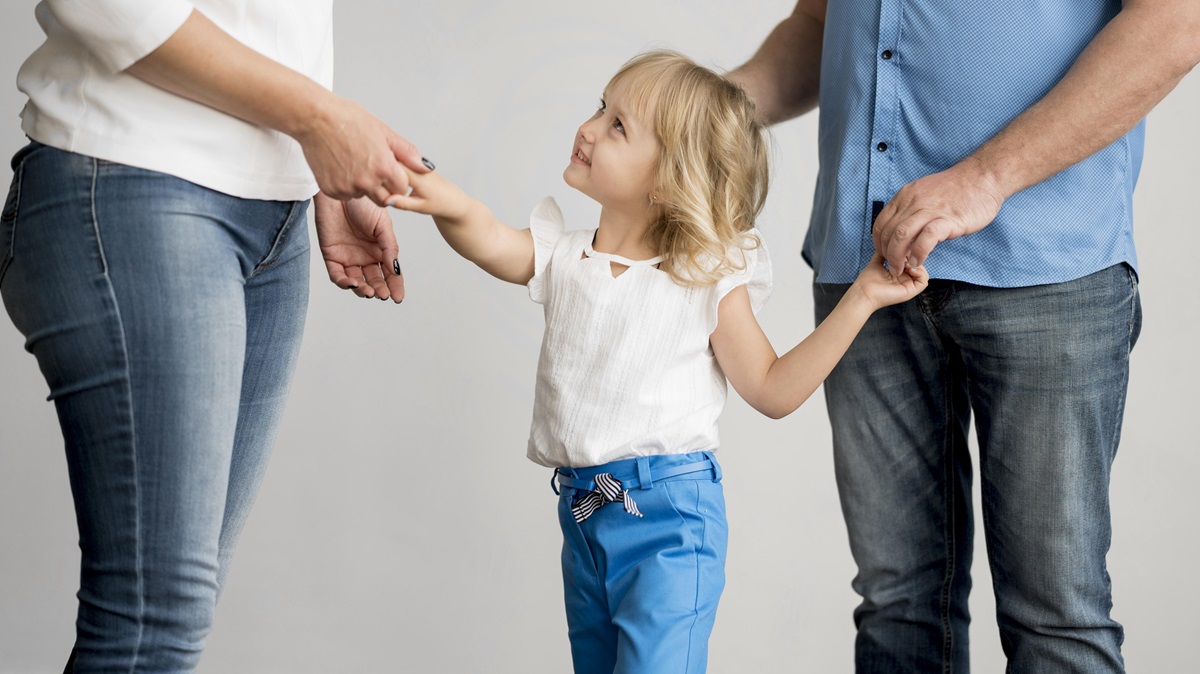What Is Joint Custody of Children After Divorce in UAE Law?
In the UAE, joint custody after divorce allows both parents to share in the responsibilities and decision-making regarding their child’s upbringing. Under Federal Decree-Law No. 41/2022 on Civil Personal Status, joint custody is granted by default to both parents, promoting equal involvement in the child’s life to ensure stability and well-being.
If you’re facing a custody dispute or need guidance on family law matters, experienced family lawyers in Dubai can provide expert legal support. They ensure your rights are protected and help navigate the complexities of custody agreements and petitions.
Both parents are responsible for key decisions related to the child’s health, education, and general welfare. However, if one parent is deemed unfit or unable to fulfill these duties, the other may petition the court for sole custody. The court’s priority in custody cases is always the child’s best interests.
Joint Custody under Federal Decree-Law No. 41/2022 on Civil Personal Status
Under UAE’s Federal Decree-Law No. 41/2022 on Civil Personal Status, joint custody is prioritized to ensure both parents share responsibility in the child’s upbringing after divorce. Article 4 establishes equality between men and women in rights like testimony, inheritance, and divorce, granting both parents equal custody rights until the child reaches 18 years old. Article 10 mandates that shared custody is standard, promoting each parent’s involvement in the child’s psychological and emotional stability. However, if one parent is deemed unfit or a danger to the child, the other can petition the court for sole custody.
Further regulations in Cabinet Decision No. 122/2023 specify custody procedures, clarifying that joint custody typically involves regular, structured time-sharing (weekly, semi-monthly, or monthly) based on the child’s needs. If disputes arise, the court ensures decisions favor the child’s welfare, including modifying visitation or custody terms as needed. Either parent can be removed from joint custody if valid grounds exist, such as domestic violence, substance abuse, or failure to fulfill custodial responsibilities.
The law also details visitation rules, emphasizing mutual agreements between parents. Travel or visitation decisions that might affect the child’s stability require consent from both parents or, failing that, court approval. The court can modify visitation arrangements if it serves the child’s best interest, showing UAE’s commitment to protecting children’s rights and well-being post-divorce.
If the Custodian is the Mother or Father in Joint Custody, They Must:
- Both parents must be mentally and physically capable of sharing responsibility for the child’s care and upbringing.
- Both parents should maintain good moral conduct and have no criminal record that would impact the child’s well-being.
- Both parents are responsible for providing a stable environment for the child, ensuring their emotional and physical needs are met.
- Both parents must agree to share the responsibilities of education, healthcare, and general welfare, making decisions together in the best interests of the child.
- Both parents have equal rights to custody and decision-making under joint custody, with both having a say in significant matters such as schooling, medical treatment, and other critical decisions.
- If one parent is not the primary custodian, they must facilitate the other parent’s visitation rights, ensuring the child’s relationship with both parents is maintained.
Till When Can the Mother Have Custody?
Under Article 156 of Federal Law No. 28 of 2005 for Personal Affairs in the UAE, a mother’s custody of her child generally continues until her son reaches 11 years of age and her daughter reaches 13. After these ages, custody may be reconsidered by the court, which takes into account the best interests of the child and may allow custody to continue with the mother or transfer it to the father if deemed more suitable.
Rights and Responsibilities of Parents in Joint Custody
Joint custody in the UAE divides various responsibilities between the parents. This includes:
- Decision-Making: Both parents have equal say in important matters, such as education, health, and religious upbringing.
- Parenting Time: Typically, both parents have a set schedule to spend time with the child. This arrangement may vary based on the court’s decision and the family’s needs.
- Residence: In some cases, the child may reside with one parent, with visitation rights granted to the other. Alternatively, the child may split time between both homes.
The aim of these shared responsibilities is to ensure that the child maintains a strong connection with both parents while also benefiting from the stability and consistency needed for healthy development.
Conditions for Granting Joint Custody in the UAE
The UAE courts will consider several factors when deciding if joint custody is the right fit, including:
- The Child’s Best Interests: The court’s priority is always the welfare and stability of the child. Joint custody is more likely if both parents are supportive of each other’s role and can put the child’s needs above personal differences.
- Parental Behavior: Factors such as a parent’s conduct, emotional stability, and ability to maintain a safe environment for the child play a role.
- Communication Skills: Joint custody is usually granted if both parents can communicate effectively and resolve conflicts amicably for the child’s sake.
Joint custody might not be granted if one parent has a history of abusive behavior, substance abuse, or any conduct that could harm the child’s well-being.
Benefits and Challenges of Joint Custody
Joint custody offers several benefits, including:
- Maintaining strong relationships with both parents reduces stress and helps children feel secure.
- Both parents are equally responsible for the child’s upbringing, creating a balanced parenting approach.
However, joint custody also presents challenges, particularly if parents struggle to communicate or disagree on key decisions. For this reason, the UAE courts carefully evaluate whether both parents can handle the complexities involved.
Applying for Joint Custody in the UAE
The process for applying for joint custody involves submitting a custody application to the UAE Family Court, where parents may need to provide documentation, such as evidence of financial stability, proof of a healthy environment, and an ability to cooperate with each other. The court may also require a mediation process, where parents work with a mediator to discuss custody arrangements. If joint custody is granted, a structured plan is established outlining each parent’s responsibilities and time-sharing schedule.
Documents you need to apply for Joint Custody:
- Marriage Certificate (translated into Arabic if necessary)
- Divorce Decree (finalized and certified)
- Children’s Birth Certificates (with official translation if needed)
- Emirates IDs of both parents
- Passports of both parents
- Proof of Residence (e.g., utility bills or tenancy contract)
- Medical Reports (if relevant to the child’s health or well-being)
- Proof of Financial Stability (e.g., salary certificates, bank statements)
- Custody Petition (formal request submitted to the court)
Modifying Custody Arrangements
Life circumstances can change, and sometimes existing custody arrangements need to be modified. In the UAE, parents can request a review of custody terms if they can demonstrate that the changes are in the child’s best interests. This process usually involves submitting a formal request to the court and may require evidence of the need for adjustments.
For expert legal guidance, Hussain Lootah stands as one of the top certified best lawyers in Dubai, specializing in family, divorce, property, labor, and corporate law. With decades of experience, he ensures personalized legal solutions to navigate complex legal matters effectively.
Conclusion
Understanding joint custody laws in the UAE is essential for parents going through a divorce. This arrangement can provide children with the emotional support and stability they need by keeping both parents actively involved in their lives. While joint custody may not be the best solution for all families, for those who can work together, it offers a path to positive co-parenting and balanced involvement in their child’s life.








